MANAGING DIVERSITY: WHITHER THE MUSLIMS
إدارة التنوع: أين المسلمون
An Associate Professor and Head, Department of Fiqh and Usul al-Fiqh (Islamic Jurisprudence and Legal Theory) from the International Islamic University, Malaysia (IIUM), Dr. Luqman Zakariyah delivered a great presentation on Sunday, April 28, 2019 at the Main Auditorium, University of Lagos, the venue of the 25th Silver Jubilee Pre-Ramadan Lecture organised by Unilag Muslim Alumni (UMA).
Protocol:
Innal Hamd Lillah , Nahmaduhu wa nasta’inuhu wa nastahdihi wa natubu ilayhi. Wa Na’udhubihi min shurur anfusina, wa min sayyiaati a’amalina,
• His Excellency, the Governor of Osun State, Alhaji
• His Excellency, the Sultan of Sokoto, Alhaji Muhammad Sa’ad Abukabar III,
• His Excellency, the Vice Chancellor of the University of Lagos
• Distinguished Guests, Ladies and Gentlemen
As-Salaam alaykum Warahmatullah Wabarakatuhu
1. Introduction
Having extended my best of Islamic greetings to you all, permit me to open this discourse entitled: “Managing Diversity: Whither the Muslims in Nigeria,” by saying that it is always admirable in an academic exercise to tackle a complex issue, as this, than to engage in superficial matters, so that our intellectual acumen can be constantly questioned and sharpened.
Revisiting ways of managing diversity in Islam and particularly in our contemporary age is one of the most challenging, most compelling and, of course, most complex issues that beg us, as a people, for discussion both in academic circles and in the public.
This is all the more so, as our tendency to behave in a certain way contrary to the dictates of our Scripture has been put to the test and it is good to know whether we actually follow the text and the context of our religion or we are merely speaking in empty rhetoric rather than being pragmatic.
Diversity, as you all know, is undeniably a natural phenomenon. The denial of this fact is tantamount to rejecting Allah’s decree. There’s nothing created by Allah but has elements of diversity; birds in the sky, the oceans and the rivers, the earth and the heaven, different animals, day and night, etc. are all testimonies of Allah’s will as regards diversity.
(Quran 12: 118, 5:48 and 16 93) “And if Allah had pleased he would have made you a single nation ..”)
This will of Allah as regards diversity is not meant to make one individual superior to the other, rather the most superior before Allah is the most pious (Q. 49 : 13).
The creation of man in diverse races is for identity purposes which means that it is possible to live together. But the problem is: “how do we manage our diversity.” One important lesson from Quran 49:13 is that no one can live in isolation from others. The word “lita’araf” includes all sorts of races, ethnicities, colours, religions, and nations etc.
Diversity in gender and race is mentioned in Surat Najm “ {وَأَنَّهُ خَلَقَ الزَّوْجَيْنِ الذَّكَرَ وَالْأُنْثَى}
“Indeed it is He who created the couples, male and female”
The disparity is not to oppress or to cause injustice on the earth but rather to complement and support one another
وقال: {مَنْ عَمِلَ صالِحاً مِنْ ذَكَرٍ أَوْ أُنْثى وَهُوَ مُؤْمِنٌ فَلَنُحْيِيَنَّهُ حَياةً طَيِّبَةً وَلَنَجْزِيَنَّهُمْ أَجْرَهُمْ بِأَحْسَنِ ما كانُوا يَعْمَلُونَ}
As regards racial and tribal diversity, Allah says:
قال الله تعالى: {يَا أَيُّهَا النَّاسُ إِنَّا خَلَقْنَاكُم مِّن ذَكَرٍ وَأُنثَى وَجَعَلْنَاكُمْ شُعُوبًا وَقَبَائِلَ لِتَعَارَفُوا إِنَّ أَكْرَمَكُمْ عِندَ اللَّهِ أَتْقَاكُمْ إِنَّ اللَّهَ عَلِيمٌ خَبِيرٌ}
Oh Mankind, we created you in male and female, and we made tribes and clans for your to know and interact with another, the most honored among your are the pious”
This is to showcase the signs of Allah
قال تعالى: {وَمِنْ آيَاتِهِ خَلْقُ السَّمَاوَاتِ وَالأَرْضِ وَاخْتِلافُ أَلْسِنَتِكُمْ وَأَلْوَانِكُمْ إِنَّ فِي ذَلِكَ لَآيَاتٍ لِّلْعَالِمِينَ}.
“Among His signs is the creation of the heavens and the earth, and the difference in your languages and your colours, in this , indeed there are signs for those who know”
While diversity is undeniable, to manage it as Allah wants poses challenges to the mankind.
This challenge emanates from the fact that Allah commands unity within this diversity and warns against any division.
Quran 3 : verse 103 – 105,
Allah says “ Wa’ Tazimu bi hablillah jamian…He also says “ wala tanazau fatafshalu wa tadhab rihukum.. (Anfal 46)
The prophet Muhammad also warned the Ummah of disunity “Don’t be divided because those who were before you were divided and they were perished. (al-Bukhari).
From there, Allah gave some tips of how intra religious diversity can be managed when He rejects any imposition of Islam on anyone. {لَا إِكْرَاهَ فِي الدِّينِ قَدْ تَبَيَّنَ الرُّشْدُ مِنَ الْغَيِّ}،
“ No compulsion in religion, the truth is clear”
By extension, it implies that having different views within a particular religion should not cause discord and violence but rather respect and recognition.
By the existence of Diversity, a multicultural society is inevitable. Being Multicultural “entails acknowledging the validity of the cultural expression and contributions of various groups ‘ (Caleb p. 2).
However, by no mean does this suggest that one has to tolerate all cultures, as some may be contradictory of the vision and mission of a society. We tend to acknowledge the cultural expression of others if there is a benefit in it. We don’t necessarily value it.
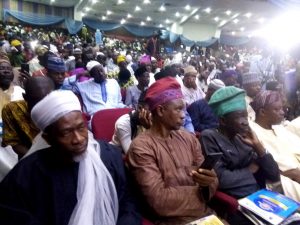
Thus, “multiculturalism means valuing what people have to offer, and not rejecting it simply because it differs from what the majority or those in power regard as important and of value” (Caleb p. 2-3)
To embrace other cultures necessitates empowering them. As no one knows where good will emerge in the future. A deviant sect today may become a righteous sect tomorrow. (Hadith ibn Masud reported in the two authentic hadith that “a man might be doing wrong deeds, and before he dies he will change to good deeds and he will be admitted to the jannah.
The Quran also indicates that one is no absolutely better than others as only Allah knows who is the most pious.
((32)) اتَّقَىٰ مَنِبِ أَعْلَمُ هُوَ أَنفُسَكُمْ تُزَكُّوا فَلَا ۖ
“ Do not purify yourselves, Allah knows who is the pious” (Najm 53: 32)
One of the dreadful mistakes we often make, is our inability to recognize the little positive sides of others. We often look into the negative outlook more than the positive inward. However, the instruction of the Lawgiver is to look for the positive than the negative. Moreover, we often blame some set of people for historical wrong of their ancestors. This kind of attitude avails us nothing but bashing.
Let us navigate the ways and manners of our predecessors in had managing their differences
2. Historical Trends of Managing Diversity in Islam
a. Prophet Muhammad as a Manager of diversity
The prophet demonstrated pragmatic approaches to dealing with diversity of religions, races, ideologies and opinions in his dispensation of prophetic leadership. The Prophet had noticed the diversity of culture and tribes among his companions when he arrived in Madinah.
The first way of managing this diversity is the treaty and accords between the khazraj and aws. According to Islamic historians “ in Madinah, the Prophet had to deal with three different categories of people with different respective problems (a) his companions, (b) unbelievers, who are purely Madanese, and (c) the Jews.
Among the Companions, we have two categories: (a) The Ansari (the helpers) and (b) the Muhajiri (the Emigrants). Within the category of the Companions, different entities were identifiable, racial, and tribal dissimilarity as well as differences in the level of knowledge.
It has been recognized that the establishment of fraternity and the Madinah treaty are significant landmarks of recognizing diversity and its effective management during the time of the Prophet. The Brotherhood approach avails the companions to see beyond just tribes and races but rather a unity in diversity. The system of Mu’akhat allowed the companions to relinquish all tribal traits and embrace Islamic universality. Thus, the social interaction among the companions set aside the ethical differences and eliminated prejudices.
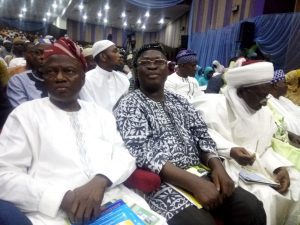
The treaty of Madinah, on the other hand, was deemed the first ever United Nations-like treaty experienced on the surface of the earth for a mutual and peaceful coexistence. In this treaty, every tribe, and race were recognized and their roles in the growth and development of the city of Madinah were highlighted.
Another significant method of managing diversity during the time of the prophet was seen in his response to the dispute among the companions. After the battle of the trench (khandaq), he deployed some companions to the tribe of قريظة Qurayzah for their act of treason during the battle against the Muslims. He said to them
“None of you should pray Asr until you reach the tribe of Qurayzah. On their way, it was time for Asr prayer, some stopped to pray and some refused to take the instruction of the Prophet literal. When they returned to Madinah, Ibn Umar who reported the incident says “”The Prophet did not blame anyone”. Such approach, on different occasions, has been reported.
The unbelievers of Madinah were of two tribes (al-Khazraj and al-Aws) who out of fear untruthfully inclined to Islam. Some later embraced Islam sincerely while others did so unwillingly. That led to the birth of hypocrisy in Madinah. Among the latter was Abdullah Ibn Ubayi Ibn Salul the head of hypocrites. However, the Prophet was able to manage the situation until Allah eventually exposed them.
During the episode of defamation of Aisha the wife of the Propohet, al-Tabari reports in his tafsir that when Allah had exposed Abullah ibn Ubayyu bi Salul, the Prophet said: “I would not like people to say that Muhammad kills his follower. Call the son of Abdullah for me and narrate what his father had done.” The Prophet’s attitude towards Ibn Ubayy in the event of the defamation of Aisha signifies that the Prophet was a good manager of diversity
The other group was the Jews of Banu Quraiza, Ban Qainuqa’ and banu Naddir,. Despite being at loggerheads with the Prophet Muhammad, the Quran still recognized their presence and gave them their right to judge according to their scripture (Falyahkum). Not only that, to show the Prophet’s good rapport with the Jews in Madinah, it has been reported that the Prophet died and his garment was mortgaged with a Jew. It is reported from Anas who said the Prophet mortgaged his garment with a jew in madinah for a barley he bought from him (al_Bukhari)
ويقول الشوكاني في “نيل الأوطار” أول كتاب الرهن: عن أنس قال: “رهن رسول الله صلى الله عليه وسلم درعًا عند يهودي بالمدينة، وأخذ منه شعيرًا لأهله”؛ رواه أحمد والبخاري والنسائي وابن
b. The Companions as Custodians of managing diversity
The Companion’s ways of Managing Diversity
Let us shift to the time of the Companions. Despite the fact that they were nurtured by the best leader, and we would have expected from them to have had parallel understanding of Islamic injunctions, yet, their natural diversity in the level of understanding and interpretation of the text differs.
On many occasions, Abubakr would consult the companions on some critical issues related to jurisprudence and theology. One apt example is the war against those who refused to pay zakat. The standpoint of Umar on the issue differed from Abubakr. The Caliph did not hasten to take action until he solicited for the support of other senior companions based on his convincing evidence for which Umar lately subscribed. That did not make Umar to become a Kafir nor a rebel.
Moreover, on jurisprudential issues, Ibn Abbass had maintained a differing position for a long time in his life on the permissibility of Riba al-fadh, a position which he later retracted before his death.
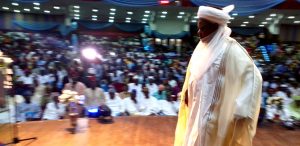
From all the narratives on the story of Ibn Abbass regarding permissibility of Riba al-Fadh or not and other opposing views he had held, the marked lessons are:
1. None of the sahabah stereotyped Ibn Abbas or branded him kafir.
2. Despite the fact that Ibn Abbass was considered the most knowledgeable scholar on jurisprudence, Ibn Abbas was reported to have reverted from this stand upon securing enough evidence that the Prophet had prohibited such practices. When he confirmed the evidence he said “astagfiruLlah wa atubu ilayhi. Allah Akbar. How far we are from this noble stand ! The same goes to his stand on nikah al-mut’ah (See al-Shinqiti Adwa’ al-Bayan vol. 1 161.
On ideological deviance, Islamic history is full with the case of the Kharijites. However, Ali Ibn Abi Talib did not pronounce them Kuffar. Rather, when Ali was asked whether the people of Nahran were mushrikum (infidels), he replied: “They are far from shirk.” He was then asked: “Are they hypocrites?” He replied: “The hypocrites would not remember Allah often.” And they asked him: “Who then are they? Ali replied: “They are our brothers, we fought them because they attacked us.” (ref)
سئل علي عن أهل النهروان : أمشركون هم؟ فقال: «من الشرك فروا»، قيل: منافقون هم؟ قال: «إن المنافقين لا يذكرون الله إلا قليلا»، قيل: فما هم؟ قال: «إخواننا بغوا علينا، فقاتلناهم»
The lesson to be learnt from this stand is that not always the hard reaction to such occurrence is helpful to solve the problem of ummah and if you have rancor with your fellows, still recognize the bond of Islam between you and him.
This is the stand of our great predecessors/ancestors May Allah be pleased with them.
Let us also explore the far rich tolerance among the Muslim Jurists
c. Classical Muslim Scholars
Imam Malik with humble recognition of diversity in juristic opinions
Historians narrate that when the Abbasid Caliph Mansur (re. 754–775) began unifying the caliphate, his secretary Ibn Muqaffa‘ (d. 759) advised the Caliph about the lack of uniformity in judicial practices. Qadis at this time were issuing divergent and conflicting judgments, which caused legal chaos.
The Caliph came to know that Imam Malik was compiling or had compiled al- Muwatta, a corpus of the Sunnah of the Prophet as known and practised in Medina. On his way to Makkah for Hajj, he visited Imam Malik in Medina. Caliph Mansur proposed to Imam Malik that al-Muwatta be adopted as the law of the caliphate but Imam Malik disagreed with the Caliph’s wishes and persuaded him against it.
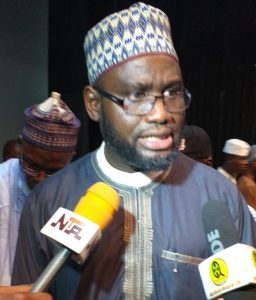
Ibn Sa‘d (d. 845) reports on the authority of Muhammad b. Umar al-Waqidi (d. 822), that Imam Malik narrated the story as follows: “When Abu Ja’far [Caliph Mansur] performed Hajj, he called me. I went to see him and we talked. He asked questions and I replied.
Then he said, ‘I have resolved to have several copies made of these books that you have composed. I will send one copy each to every Muslim city. I shall order the people to abide by its contents exclusively. I will make them set aside everything else other than this new knowledge, because I find true knowledge in the tradition of Medina.’
I said, ‘O Commander of the faithful! Do not do that. Because the people have received various reports, heard several statements, and transmitted these accounts. Each community is acting upon the information they have received. They are practicing and dealing with others in their mutual differences accordingly.
Dissuading the people from what they are practicing would put them to hardship. Leave the people alone with their practices. Let the people in each city choose for them what they prefer.’ Mansur said, ‘I swear! Had you complied with my wishes I would have ordered so [Ibn Sa‘d, Al-Tabaqāt al-Kubrā, al-qism al-mutammim].
A take from this story inform me and you that in a diverse society, one has no right to monopoly Islamic rulings. No one is born to rule. Other opinions of scholars must be heard. Were Imam Malik is egocentric, he would have accepted the request and his only view would have been imposed on others.
Many of similar examples can be found in the lives of our great Muslim jurists. Non of them took the matters to the level of disunity while recognizing their diversity in understanding and interpreting texts.
3. Whither Muslims in Managing Diversity: Nigerian Muslims as a Case Study
a. Why Diversity must be Managed?
Let us look back from early 80s till late 90s what had happened among our then MSS youths who are today our elders. Let us reflect on the unnecessary yet unfortunate crises engulfed us in the wake of reforming MSS. Let us answer the question of whether what we had done then was right or wrong. Some of my audience today would have witnessed the battle in Zumratu in Yaba, the rancor and conspiracy among us in various IVC from late 80s to early 90s.
Today, what is our benefit from the mayhem? Some of us might have progressed in our dally lives, academically and economically buoyant. But the physiological and spiritual dents that we have left behind are recurring in our youth today.

The attrition caused by sporadic killings in some parts of Nigeria by Boko Haram, the erratic verbal vendetta, and character assassination among our brothers and sisters today are nothing than act of adolescence and lack of managing diversity among the Muslims let alone with other religions.
Not only in Nigeria, of course, this can be found. Animosity among the adherents of Islam is more visible than their enmity with other religions. The incessant strife in other part of the Muslim world between Ahl sunnah and Shi’, Tablig and Deobandi, Ahl Hadith and jama islamiyyah to mention but a few is a disturbing ailment in Islam.
Over the years, there are challenges of who is the real rod light of the orthodox Islam among the Muslim preachers, scholars, organizations and sects. There has been a long-inherited dispute between Sunni versus the Shia sects. In 1990 to 2000, there were conflicts between Izālah and Ṭarīqah in the north.
There are issues of Ahlu-Sunnah being tagged Alaqidah and kogbagboye (that is the extremes group of belivers and those who do not hold the correct understanding of Islam) , and more recently the case of salafists, in south-west Nigeria. Presently, the fast-spreading ideology of the salafiyyah groups is a concern among Muslims particularly in academic environments such as universities, polytechnics and colleges of educations.
It can be argued that lack of proper management of Boko haram activities could be one of the reasons for the escalation of violence. It is noted that the group which was founded in 2002 in Maiduguri did not become militant until 2009 when its leader was captured and killed by the Nigerian army. Since then, the group has engaged in gun battles, bombing and stabbing, in promoting their ideology (Warner 2012:40).
4. Proposed Approaches for Managing Diversity
a. What is managing diversity?
b. What are the proposed approaches?
c. What is the Islamic view on these approaches?
d. Who are the managers?
Managing diversity is defined as “planning and implementing organizational systems and practices to manage people so that the potential advantages of diversity are maximized while its potential disadvantages are minimized.”
According to Caleb Rosado, a professor of sociology at Southern Connecticut State University “Managing diversity is an on-going process that unleashes the various talents and capabilities which a diverse population bring to an organization, community or society, so as to create a wholesome, inclusive environment, that is “safe for differences,” enables people to “reject rejection,” celebrate diversity, and maximize the full potential of all in a cultural context where everyone benefits”
Many approaches to manage diversity have been proposed from different quarters. In Islam, there are techniques that are divine in nature but human in practice and interpretation. For any organization to restrict itself to the old model of managing diversity in their locality will jeopardize the ultimate objective of managing diversity and inevitably loose the benefit and definitely risk the emergence of chaos and quarrel in the society.
A holistic form of managing diversity recognizes two dimensions: horizontal (biological e.g. age, gender…. and vertical (psych-socio spiritual ). Caleb opines that the horizontal dimension does only solve individual differences while vertical tends to solve the institutional structure of diversity.
The former may be less problematic to deal with; however, the latter is more sensitive and complex in any given society. To deal with vertical dimension of diversity requires understanding the bedrock of the diversity. It won’t be wise for someone to suggest that Islam condones and accepts all ideologies within or outside Islam. This is evidently communicated to us in the Quran “lakum dinukum waliya din, (for the disbelievers).
In Nigeria today, the Muslim Ummah are in need of a holistic model of managing diversity. The holistic model that is popularized by W. Edward Deming which he called “Total Quality Management” (TQM) together with “Total Quality Diversity needs to be explored.
However, total quality diversity cannot be achieved without total quality respect. (Caleb). Total Quality Respect “is the process whereby the other is treated with references, courtesy, and compassion in an endeavour to safeguard the integrity, dignity, values and social worth of the individual” (p. 8)
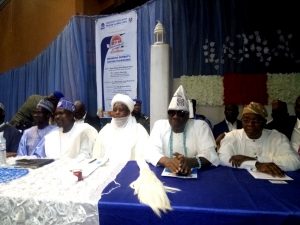
In other words, “it means treating people the way they should be treated.” This part of exercise is what Islam called the brotherhood. And no one can be a sincere and complete Mu’min until he or she loves for others what he or she loves for him or herself. ().
Thus, I will propose the following to achieve a holistic way of managing diversity among the Muslims and beyond in Nigeria
1. Political Infrastructure: The political will that will drive and manage diversity. This sovereign within the Muslim community will ensure that all treaty on diversity is respected and upheld. No one should be given nepotism and condone to bridge the treaty. The Sahifat al-Madina is a typical and practical example where the prophet and all stakeholders in Madina had to abide with the treaty.
2. Educational Infrastructure: To properly manage diversity, we need a strong and well-established educational institution where diversity shall be honored, natured, celebrated. With education, people can understand the values of being diverse but unite in a society. The prophet had epitomized this when he chose his mosque to train and educate the companions and when intolerance surfaced among the sahabah he correct it. As he did to Abu Dharr al-Ghfari (ref)
Through these Infrastructures following methods can be established to manage our diversity
a. Civilizational Dialogues : Dialogue among different cultures, ideology is well welcome in Islam. It is not a new phenomenon that originated post 1989. Miscommunication and monologue approach has created social lacuna among the religious bodies in this world.
To overcome this disorder, there is a pressing need for religious and sectarian dialogue based on civilizational dialogue. “By dialoguing, we have created enabling environment for understanding” The Quran has called for unity in dialogues, with other religious faiths. (Ta’alaw ila). This indeed implies that there is commonality among humans. This commonality is the bond that holds all mankind together. This unique similarity must be celebrated, enhanced, promoted, and nurtured in any society that believes in One God
b. Humanity “The concept of humanity creates a sense of belonging in human beings as the idea is not bound by the principles of “my country and your country” rather on the common interest of human beings universally” (Hilal Wani et al, in Religions p. 657)
Quran “Inna hadhi Ummatukum Ummatan Wahidat…”
c. Wasatiyyah (Moderation in religion) Islam has called for moderation in practicing of religion. This must not be construed as rejection of faith. Indeed, moderation will bring the fruit of humanity to surpass the evil of animosity.
Nobel Laureate, Amartya Sen has said that “ harmony and cooperation can be created through the plurality of identities which is resonant of differences” (While this view is one side of identities, it does comply with the philosophy of Islamic teaching that communicated in the Quran” Wakadhalika ja’alinakum ummatan wasatan”
( )
d. Maqasidic Approach:
Exploring Maqasid approach will allow individuals and decision makers to look beyond the present and go for the bigger benefits as the prophet Muhammad did in the Sulhul al-Hudaymiyyah. To compromise less benefit for higher future benefits is one of the acts of managing diversity. How will prioritize one needs in disagreement, how will distinguish the more pressing needs from less is all about being well-informed of the concept of Maqasid al-Shariah.
Conclusion
“Diversity is the natural inclination which all of us have to accept in the core of our hearts”. There is no civilized society which is homogenous; we all need each and other to grow socially, economically and spiritually. Thus, we are legally and morally bound to celebrate, recognize, respect, and manage our diversity. Lack of managing diversity leads to chaos, vendetta, smearing the image of our beloved religion and of course leads to character assassination of our fellow Muslims.
Lessons must be learnt from our pasts. Most of the clashes, destruction of lives and properties and perhaps, Muslim backwardness today is largely associated with our heedless to the importance of managing diversity.
To match our predecessors legacy, from our noble Prophet Muhammad to the best three generations afterward, we need to look at the following recommendations and suggestions
Suggestion
Legal recommendation
This lecture recommends that all Muslim groups, organisations, institutions and mosques must be registered in accordance with state law. They must be controlled under a central body operating under the purview of the Supreme Council for Islamic Affairs in the state.
This coordination will ensure peace, stability, tolerance, and solidarity among Muslim community. Securing legal and political recognition for Muslim institutions will forestall the challenges of creating another nation within the nation Nigeria as done by some preachers and groups.
Interreligious recommendations
Dialogue is a long-term solution to multi diversity challenges among human beings. Records had shown that when nations and tribe went into internal civil war, or there occur international conflicts among nations, the last and best solutions remain dialogue and diplomatic process among parties. Therefore, international relation scholars have suggested that conflicting parties should instead begin achieving their objective through dialogue.
Thanks to the government of Malaysia in creating a center within the university where research and studies on “Civilizational Dialogues are fully supported. The UMCCD is a vibrant center in research and publication on diversity and how to manage it. I sincerely charge the Supreme Council of Islamic Affairs to institute on their level a center where our diversity can be studied and researched.
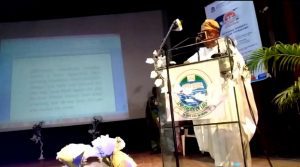
Stakeholder’s Recommendations
Our Leaders, Sultans, Imams, Scholars, Researchers Students, all have roles to play in managing diversity between Muslim and non-Muslims in this country. It is time for us to rise together to build this country.
To start from micro level, individual must appreciate the divine wisdom of Allah in creating things in a diverse way. Individual must use the ‘aqil (reason) that Allah endows him/her in dealing with other mankind and any of our action must be put on the scale of the ultimate goal of Shariah. (Maqasid al-Shariah)
Our Du’at must come to terms of respecting the views of others and preaching peace and harmony in their respectful jurisdiction. The Scholars need to learn from Umar approach with Abubakr and other companions with the opposing views of Ibn Abbas, to learn from a historical speech and admonition of Ali bn Abi Talibb to the Kharijites, and interlocution of Muslim jurists with their fellows.
The Muslim Leaders need to come up with an infrastructure that will promote peace coexistence, mutual relationship and dignity and respect among the adherent of Islam and by extension to other religious entities in the country. They must advise the government sincerely on how to deal with extreme views among the Islamic sects and other religions. Being just and compassionate to the Muslims could go far in calming insurgent anger and redress trust of the masses to their leadership.
No gain for Muslims in Islamic history when forceful action is used to address the extreme view.
The Yoruba adage goes:
Omo topa Iyare koto tale yio legbe (One who killed his/her mother would have sympathizers before the sunset.
Let me round off this lecture by quoting the narration of our Imam al-Shafi’i who leaved in the second century of Islam how he celebrated diversity and managed his dispute with his student Yunus al-Sadafi
فقال اﻹمام الشافعي : يا يونس، تجمعنا مئات المسائل وتفرقنا مسألة !! يا يونس، لا تحاول الانتصار في كل الاختلافات.. فأحيانا “كسب القلوب” أولى من “كسب المواقف”.. يا يونس، لا تهدم الجسور التي بنيتها وعبرتها.. فربما تحتاجها للعودة يوما ما.. إكره “الخطأ” دائمًا.. ولكن لا تكره “المُخطئ”.. وأبغض بكل قلبك “المعصية”.. لكن سامح وارحم “العاصي”.. يا يونس، انتقد “القول”.. لكن احترم “القائل”.. فإن مهمتنا هي أن نقضي على “المرض”.. لا على “المرضى
He said to him:
Oh, Yunus, hundreds of religious issues bond us together but only one divides us,
Oh Yunus, never attempt to gain victory in all disputes, because, sometimes to win the hearts is better than to win opinions
Oh Yunus, don’t destroy the bridge that you have built and tracked, perhaps, you may need to use it to cross back one day,
Always detest the mistake but not the one who made it
Oh Yunus, critique the view/opinion/ expression but respect the one who uttered it
Our duty is to eliminate the disease not the sick person.
Wa salaam alaykum warahmatullah

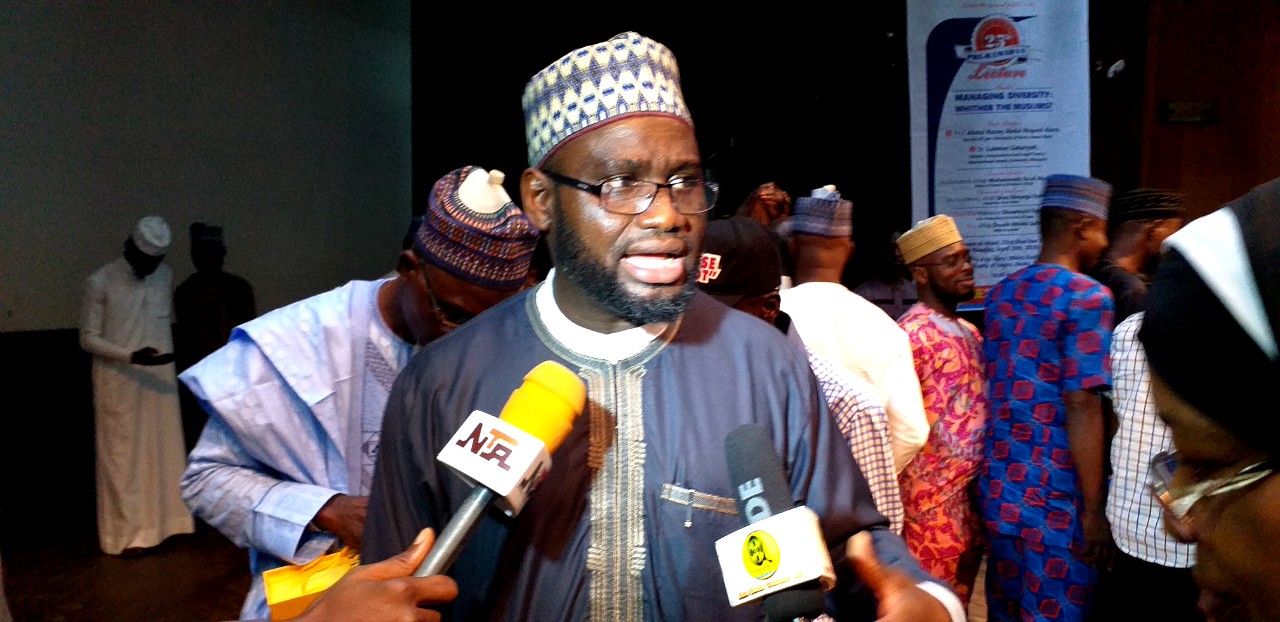

This lecture is on point for the Muslim ummah and so interesting.